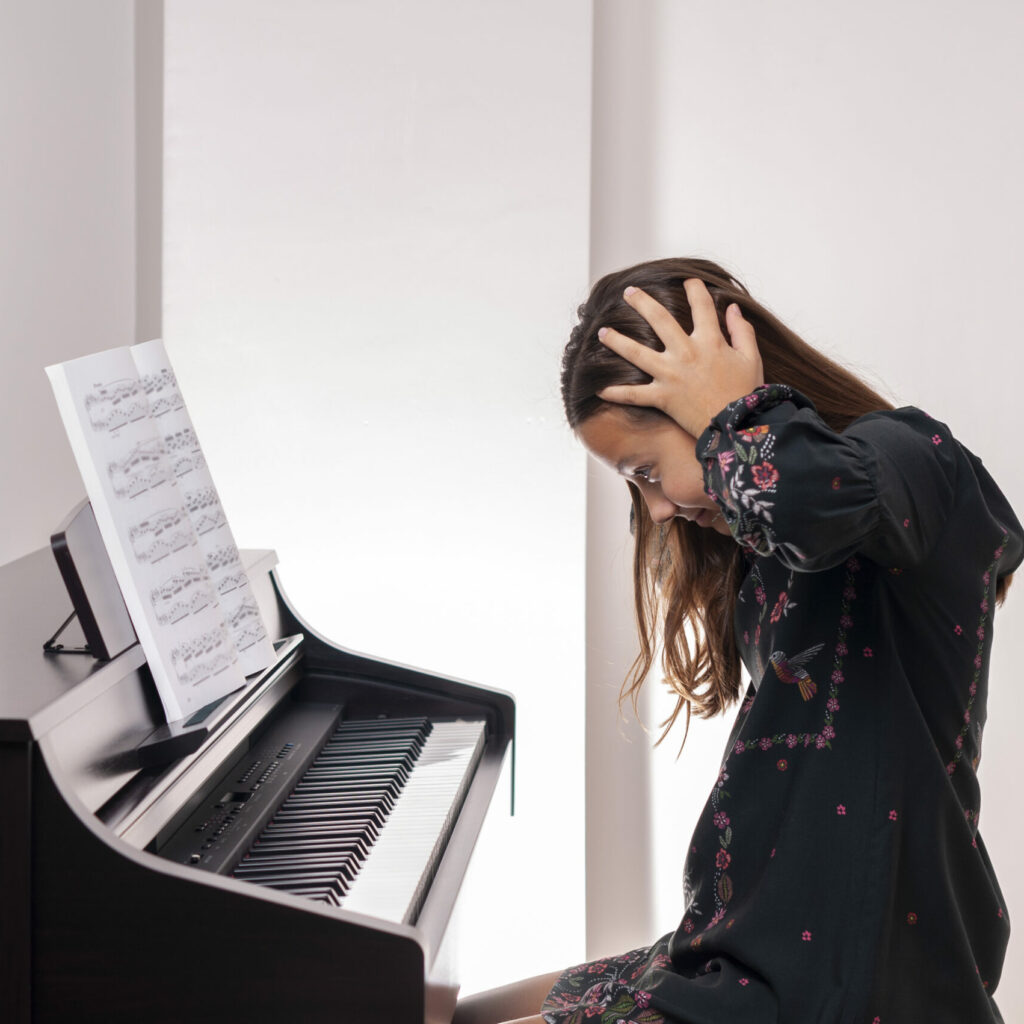I often hear new student families say “we want our child to learn to read music.” Sometimes I hear parents become frustrated when their child hasn’t learned to read in the first years of lessons.
What’s the hurry? We know that learning music shares similarities with learning language. We know that it takes children four to eight years of listening to language and using it before reading happens. But that process often happens naturally when not rushed.
Why is it a goal to read music? When we hold a young child and point to a flower and say “flower,” we’re helping them acquire a vocabulary. That vocabulary will later make it possible for them to read, but first they need to talk. Music students are older than babies but we know that music learning doesn’t correspond with chronological age.
Parents expect students to learn music by learning to read music. This is why nearly every method book starts with Middle C on the staff from the very first lesson. You would expect most piano students would finish their studies being fluent readers. But it’s just not the case. Untold numbers leave music study out of frustration; it’s too much to learn music and reading music at the same time. Can you imagine trying to teach that young child to read the word “flower” before they’ve even spoken it? Nevertheless, music teachers continue to try to teach reading from the first lessons because they think parents require that.
Most of the students who don’t quit lessons mistake decoding for reading. Working through a score tediously naming every pitch in its line or space is not reading. In the same way that reading a book one letter at a time is not reading. There’s no meaning in a letter outside of its place in a word. There’s no meaning in a pitch outside of its place in a Tonal Pattern. And we haven’t even started discussing rhythm and meter. Reading is halting at best.
Latin is an extinct language. We don’t really know what spoken Latin sounded like because there’s no unbroken tradition of people speaking it. Do you think the last generation of Latin speakers planned to be that? Our musical heritages could suffer a similar fate if the prioritization of music reading crowds out acquisition of a listening and performing vocabulary.
Reading music is an important and useful skill. But put it at the wrong point in the learning sequence and all bets are off. It’s OK if students aren’t reading in the first years of lessons, regardless of age. That time should be spent listening and performing; singing and moving. Attempting to learn reading too early is ineffective and impedes the learning process.
For an effective way to build the foundational skills that will help with reading music, use Play and Sing in Harmony.

